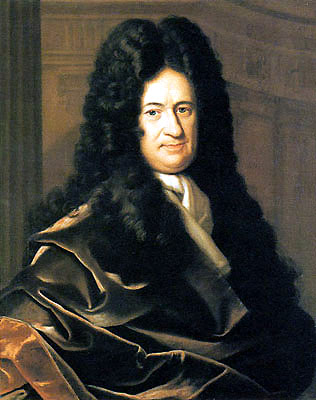*Image Credit: Wikimedia Commons If the Germans were looking for their own Renaissance man to compete with the likes of Britain’s Sir Isaac Newton, it is unlikely they would look any further than the brilliant Gottfried Leibniz, who died at the age of 70 on November 14, 1716. An expert in mathematics, insightful inventor and optimistic philosopher, Leibniz had done much to advance the Age of Enlightenment. The son of a Moral Philosophy professor at the University of Leipzig, Leibniz came into the world on July 1, 1646. His father, a respected academic with a large library, bequeathed his book collection to Leibniz upon his death when the boy was just six years old. Demonstrating a proficiency for complex ideas and a capacity for accelerated learning, he read through the college-level texts and became fluent in Latin by his teens. Studying at his father’s former employer, he received the first of many degrees — this one in philosophy — in December 1662. By the age of 20, he had gone on to acquire a master’s degree in the subject and both a bachelor’s and doctorate in law. Uninterested in the legal profession, he took a position as an alchemist in Nuremberg, where he quickly made connections with the influential and gained a reputation for thoughtful diplomacy. Moving to Paris in 1672 as an emissary to the French government, he met the Dutch mathematician Christiaan Huygens and forged a friendship which would later allow him to expand understanding of challenging equations and calculations. Guided by Huygens, Leibniz began exploring ideas related to calculus that rivaled those of Newton. Thrilled with life in the French capital, Leibniz developed relationships with leading thinkers in both philosophy and math. Unfortunately for Leibniz, despite garnering respect from many and acceptance into the French Academy of Sciences, he was unable to find employment in Paris and was forced to accept an offer with the Duke of Hanover. Working as a sort of chief historian and political advisor for the leadership, he helped the House of Brunswick as it moved upwards among the monarchies of Europe, aiding in negotiations which put the family in line for the British Crown with the 1701 Act of Settlement. Leibniz managed his responsibilities to the Duke while maintaining his efforts to refine calculus, publishing his theory in 1684, and writing letters to his various friends across the continent. Despite the attention it took away from his job — or perhaps because his academic work gained him acclaim and served as a feather in the cap of the House of Brunswick — the Dukes he served allowed him to continue on so long as he produced a family tree dating to the first Holy Roman Emperor Charlemagne. Diving into the task with a striking attention to detail, Leibniz traveled throughout central Europe in search of official documents so that he might produce as extensive a history as possible. Intent on creating something more than just a fast sketch, he unknowingly infuriated his employers. Believing Leibniz to have brushed off the task for the rest of his life, many were surprised to find his notes filled three books when they were published after his death. At the same time, he came under fire from the Royal Society in London during 1708. John Keill launched a salvo of plagiarism at Leibniz, citing the similarities between his work and that of Newton. Claiming Leibniz had copied the ideas during a trip to London in 1676, the unfounded accusations of stealing the British scientist’s notes in an attempt to claim credit for himself stuck. Though the brilliant German demanded a retraction, he spent the rest of his life treated as a fraud. (Later analysis by historians appears to show enough differences between the two to claim co-authorship.) When he died on November 14, 1716, Leibniz might have thought his legacy uncertain at best. Many of his writings on philosophy would not be published until nearly a hundred years after his death. His mathematical principles, discarded in many circles during his day, were not proven until the middle of the 20th century. Even his Stepped Reckoner, an improvement on the mechanical calculator, had failed. Passing away in Hanover, he left no family and only a tarnished reputation. The former Duke of Hanover, now King George I of England — due, in part, to Leibniz’s diplomatic skill — refused to attend his funeral. Only in death, as his writings reached luminaries like Immanuel Kant and David Hume through the 18th and into the 19th centuries, did he rise to the place he occupies as a respected thinker today. Also On This Day: 1533 – Francisco Pizarro and his Spanish team arrive in the Inca city of Cajamarca in modern Peru 1770 – The source of the Nile River is discovered by Scottish traveler James Bruce 1910 – Eugene Ely pilots his Curtiss Pusher off the deck of the USS Birmingham, the first ship-based take-off by an airplane 1922 – The British Broadcast Corporation launches its first radio broadcast 1967 – Theodore Maiman, an American physicist, receives a patent for the first laser
November 14 – 1716 CE – Gottfried Leibniz, German Philosopher and Mathematician, Dies in Hannover
*Image Credit: Wikimedia Commons If the Germans were looking for their own Renaissance man to compete with the likes of Britain’s Sir Isaac Newton, it is unlikely they would look…
562
